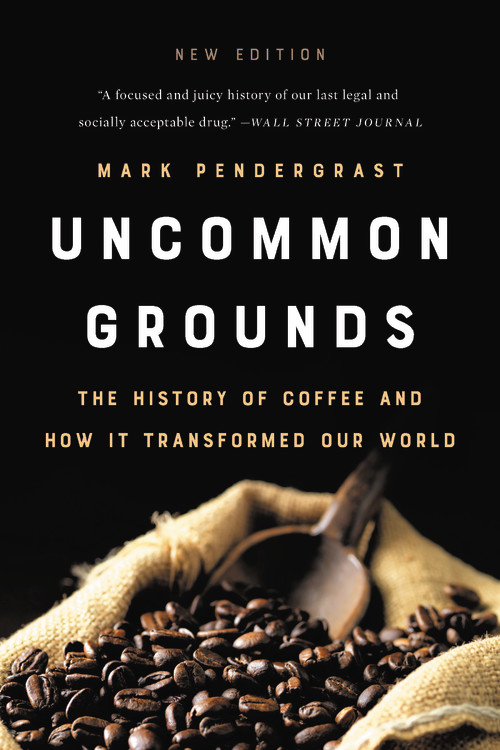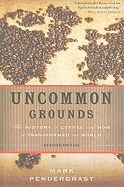

Body is a more subjective quality and refers to the feel or 'weight' of the coffee in the mouth, how it rolls around the tongue and fills the throat on the way down. The aroma is familiar and obvious enough - that fragrance that often promises more than the taste delivers. "Coffee experts talk about four basic components that blend to create the perfect cup: aroma, body, acidity, and flavor. "How do we judge coffee quality?" asks Pendergrast. Balzac, the coffee drinker's coffee drinker, wouldn't pause mid-sentence to piss in a grande latte. Thirty years later, Starbucks is a form of anti-pleasure social conditioning in which coffee has become just another learned reward in a dreary shopping experience. In 1971, three men set up a shop called Starbucks in Seattle, selling a wide range of fresh-roasted whole beans to local customers - a celebration of a simple pleasure. What Pendergrast doesn't point out is that Starbucks is the apotheosis of modern consumer society and its management of the pleasure principle. The way Pendergrast tells it, the Starbucks story is a classic illustration of the business cycle: the small start-up by men with beards and big ideas the takeover by a plastics salesman with determination and knowhow then success and market domination, followed by the inevitable backlashes, downturns and complaints about bully-boy tactics and the loss of quality. Ultimately, of course, and at length and of interest, it's a book about Starbucks. It is really an American story that he's telling, about 19th-century entrepreneurs and enthusiasts, such as the Pittsburgh grocer John Arbuckle Joel Cheek, founder of Maxwell House and C W Post, inventor of the popular coffee substitute Postum ("Is your yellow streak the coffee habit? Does it reduce your work time, kill your energy, push you into the big crowd of mongrels, deaden what thoroughbred blood you may have and neutralise all your efforts to make money and fame?").

Yet for all its exotic locations and excursions, for all the press-potted histories of Guatemala and Costa Rica, Pendergrast's coffee all ends up in the United States.

He tells the tales of the pickers and the packers, the exporters and importers, the roasters, cuppers and traders who at various times have prescribed a nice hot cup as an "aphrodisiac, enema, nerve tonic, or life-extender". Gershom Scholem reports Walter Benjamin as saying, "A philosophy that does not include the possibility of soothsaying from coffee grounds and cannot explicate it cannot be a true philosophy." Pendergrast forsakes soothsaying and makes no attempt at philosophy, but he dutifully grinds through the old myths and stories: about the discovery of coffee by the Ethiopian goatherd Kaldi and his dancing goats, about colonialism and commodification.


 0 kommentar(er)
0 kommentar(er)
